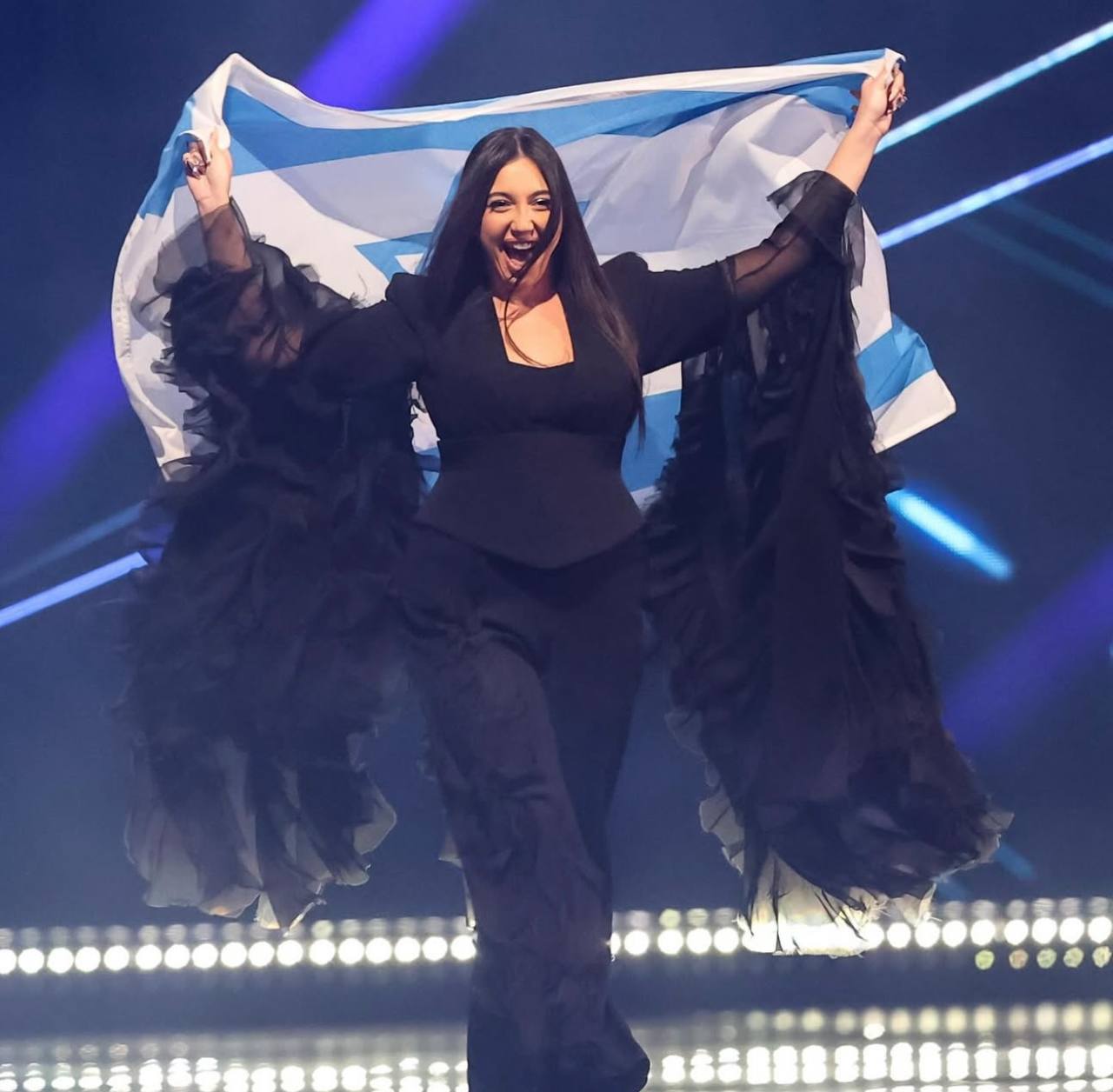Graham Norton Erased Her Story, But the World Heard Yuval Rafael
Eurovision star Yuval Rafael survived October 7 by hiding under the bodies of her friends. As the world voted her into second place, BBC’s Graham Norton chose silence.

Beneath the glittering lights of Eurovision’s grand stage, Yuval Rafael, Israel’s 24-year-old representative, sang a ballad woven from the scars of October 7, 2023. Her voice carried the weight of that day, when Hamas’s massacre at the Nova music festival stole 1,200 souls, and she, buried under the bodies of friends, whispered prayers for rescue.
Yesterday (Saturday), we all cheered when she claimed second place, lifted by a tide of public votes, yet the BBC’s Graham Norton, with a voice as cold as the shelter where she hid, erased her story, leaving only silence where her survival should have roared.
We remember October 7. We hear Yuval’s voice, not just in song, but in the anguished call to her father, a recording that seared itself into Israel’s heart. “Abba, send the police,” she begged from the safe room, her words choked with terror, “there are dead Israelis on top of me.”
For hours, she lay still, camouflaged by the fallen, until salvation came. Her Eurovision song, born from that darkness, was a cry of defiance, a melody of endurance that shook the arena to its core.
But Norton, the BBC’s silver-tongued veteran, chose to mute her truth. Introducing Rafael, fourth in the lineup, he spoke of her “professional start in 2023” and a “powerful ballad,” as if her voice sprang from nothing more than ambition.
Not a word of the massacre, the bodies, the shelter where she clung to life. Not a whisper of the trauma that forged her song, which soared despite judges’ tepid 15th-place score, only for the people’s love to crown her near-victor.
Many Eurovision viewers rushed to social media to criticize Norton’s deliberate omission. “Graham Norton says Yuval Rafael ‘started singing in 2023’ but omits the fact that the defining event was her survival of the October 7 attack at the Nova festival by hiding under a pile of bodies,” wrote one user. “I love Graham Norton, but not mentioning Yuval Rafael’s personal story is a disgrace,” wrote another. “Not mentioning October 7?!?” exclaimed a shocked user.
Another controversy arose after Rafael’s performance when Norton hinted that the sound in the arena might have differed from the enthusiastic cheers heard by viewers at home. “Not sure what you’re hearing at home, (but) a slightly mixed response here in the arena,” Norton told BBC viewers.
This comment also triggered heated reactions on social media. Many came out against Norton and his claims. “Norton is trying to sway public opinion against Yuval instead of letting viewers judge the performance for themselves,” wrote an outraged user. Another added: “Lies! I was in the arena, and the crowd cheered enthusiastically after the song. Norton is choosing to continue the BBC’s anti-Israel line even at Eurovision.”
Yuval’s song was a bridge from that blood-soaked dawn to this moment of triumph, a reminder that survival is not silence, but sound, fierce, unbroken, alive. Norton’s omission was a theft, not just of her story, but of the collective memory of October 7, when the world heard her call and wept.
As her notes faded into Stockholm’s night, the people’s votes sang back: We hear you, Yuval. We remember.
Israel Hayom contributed to this article.